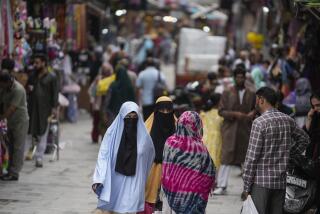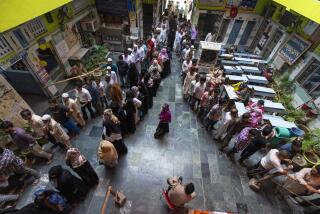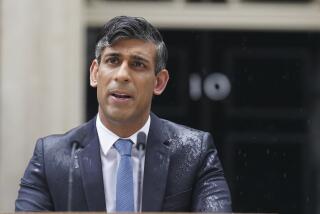Gandhi Calls Early Election as Opposition Rifts Deepen
- Share via
NEW DELHI — Prime Minister Rajiv Gandhi’s embattled government Tuesday scheduled parliamentary elections in November, earlier than expected, kicking off a campaign likely to be volatile and closely contested.
Gandhi’s decision to call an early vote, ratified at a Cabinet meeting Tuesday, comes as his administration appears vulnerable because of an arms procurement scandal and sharp inflation in the prices of some basic foods.
At the same time, however, religious violence between Hindus and Muslims has caused deepening rifts in the ranks of India’s united political opposition, called the National Front, leading senior strategists in Gandhi’s Congress Party to decide that an early vote could catch the opposition off balance.
The three-day election will begin Nov. 22, but a key question about the vote will be decided well before then. During the next seven days, India’s diverse opposition parties will attempt to negotiate a political agreement that would allow them to put up a single candidate against the ruling Congress Party in each of India’s 543 parliamentary districts.
The November election will be the first national referendum in five years in the world’s most populous democracy. Gandhi, a former airline pilot who entered politics reluctantly less than a decade ago, was elected prime minister with an overwhelming majority in 1984 after the assassination of his mother and predecessor, Indira Gandhi, by her Sikh bodyguards.
Allegations of widespread corruption in his administration, charges that he helped cover up a bribery scandal involving the Swedish arms manufacturer Bofors A.B., and the failure of his government to alleviate violence in the Sikh majority state of Punjab all have eroded Gandhi’s standing in national opinion polls.
More to Read
Sign up for Essential California
The most important California stories and recommendations in your inbox every morning.
You may occasionally receive promotional content from the Los Angeles Times.













